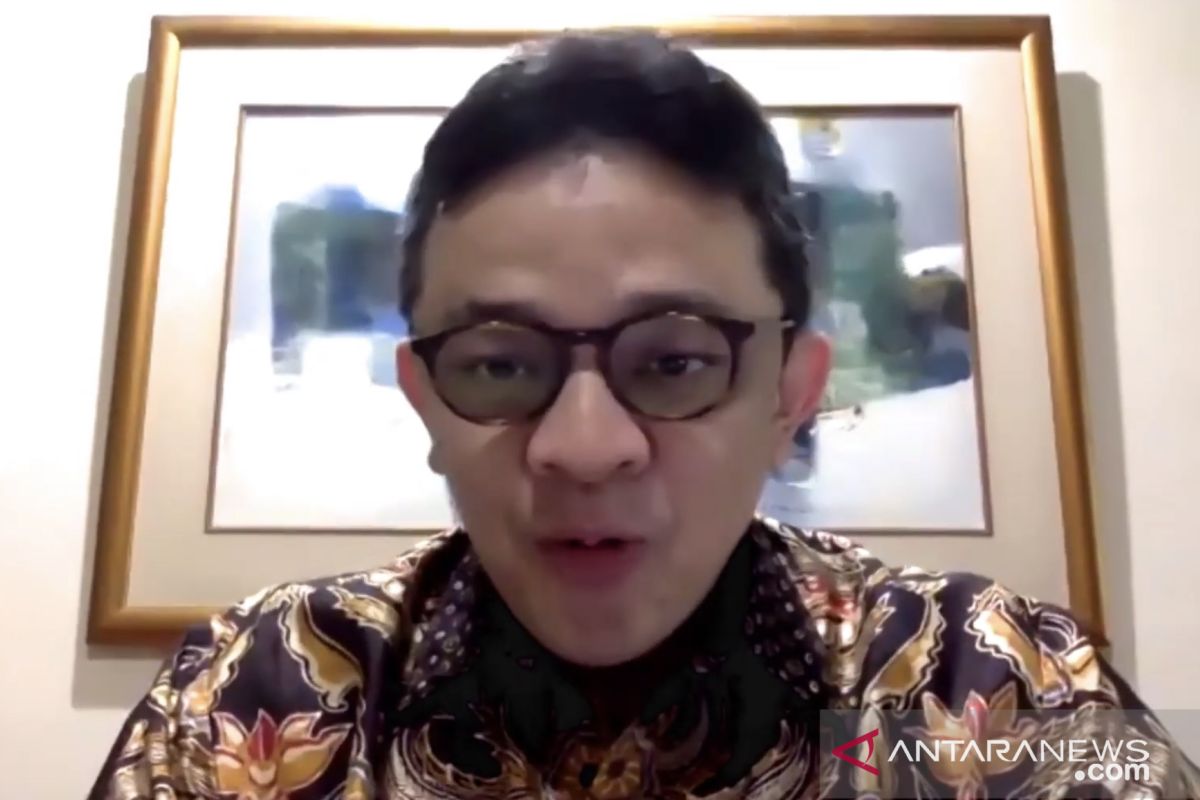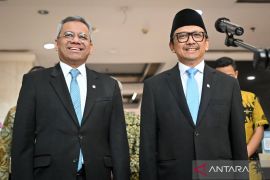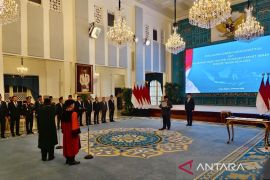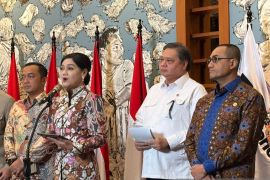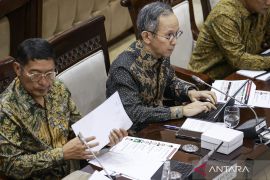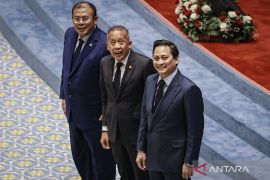The transaction was conducted under the burden-sharing scheme recently agreed upon by the government and BI, the Finance Ministry's Financing and Risk Management Director General Luky Alfirman noted in a statement here Friday.
Issuance of the VR0034, VR0035, VR0036, and VR0037 bonds was the first transaction conducted under private placement for financing public goods. Each of the government bonds is worth Rp20.5 trillion, he remarked.
The due date of the VR0034 bond is Aug 10, 2025, while the due date of the VR0035 bond is Aug 10, 2026; the VR0036 bond on Aug 10, 2027; and the VR0037 bond on Aug 10, 2028, Alfirman revealed.
Each of these government bonds has a coupon in which its first three-month tenor for the central bank's reverse repo rate reaches 3.8 percent, he stated.
Funding of Rp397.56 trillion is required to finance public goods for health, social safety net, government agencies/ministries, and regional administrations, he noted.
The transaction of government bonds is conducted in line with the Indonesian Finance Ministry's agreement with Bank Indonesia number 347/KMK.08/2020 and 22/9/KEP.GBI/2020, dated July 20, 2020.
The ongoing novel coronavirus pandemic has severely impacted the country's economy. Indonesia's GDP reportedly contracted 5.32 percent in the second quarter of this year.
During a visit to Surabaya, East Java, in June, President Joko Widodo (Jokowi) had warned of the global economic crisis, saying that it was a real challenge, and several nations had felt its impacts amid the COVID-19 pandemic.
The International Monetary Fund has forecast that this year, several countries would experience an economic contraction.
The US economy was projected to contract up to minus eight percent, while those of Japan, the UK, France, Italy, Spain, and Germany would decline to -5.8 percent, -10.2 percent, -12.5 percent, -12.8 percent, - 12.8 percent, and -7.5 percent respectively.
"What does this mean? It means that supply, demand, and production will get disrupted. We must be aware of the fact that while we are handling public health issues, we still reel from the other problem that is the economy," President Jokowi remarked.
Hence, this calls for maintaining a balance in pushing the brake and accelerator pedals in managing the public health and economic crises.
"We cannot push economic matters, but health issues are ignored," he noted.
"In its place, we cannot also focus solely on health issues, but the economy gets disrupted. I have repeatedly informed the regional leaders to push 'the brake and accelerator pedals' in a balanced mode. This is now challenging," he reiterated.
In facing this reality, President Jokowi has urged the nation to have the mental fortitude, as all countries, including Indonesia, are reeling from public health and economic crises owing to the impacts of the ongoing COVID-19 pandemic.
The public health and economic crises, caused by the COVID-19 pandemic, have undoubtedly encumbered several nations.
Related news: Pupuk Indonesia issues bonds worth Rp2.5 trillion
Related news: Indonesia's forex reserves soar to US$131.7 billion in June-end
EDITED BY INE
Translator: Satyagraha, Rahmad Nasution
Editor: Fardah Assegaf
Copyright © ANTARA 2020
